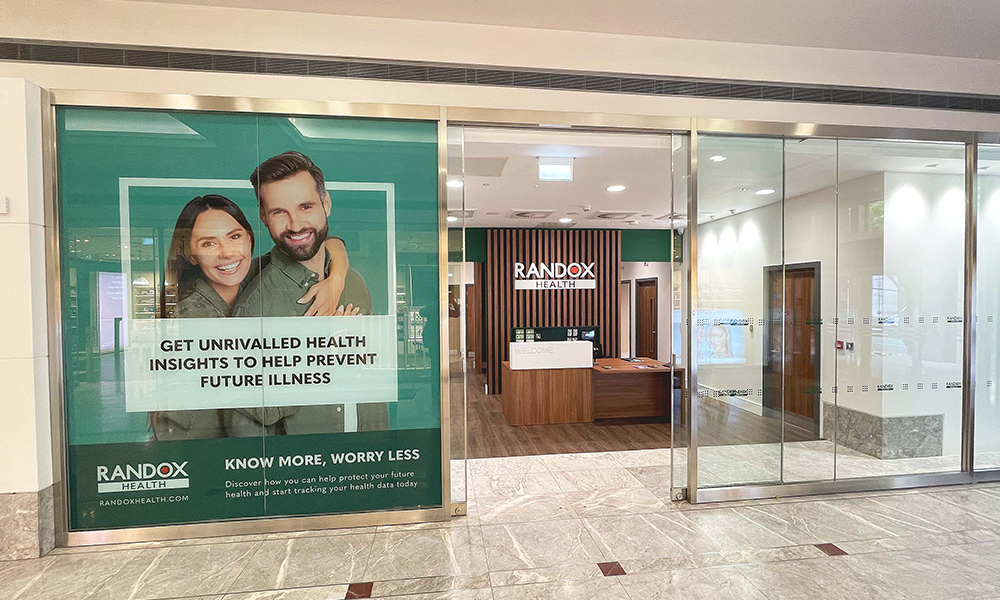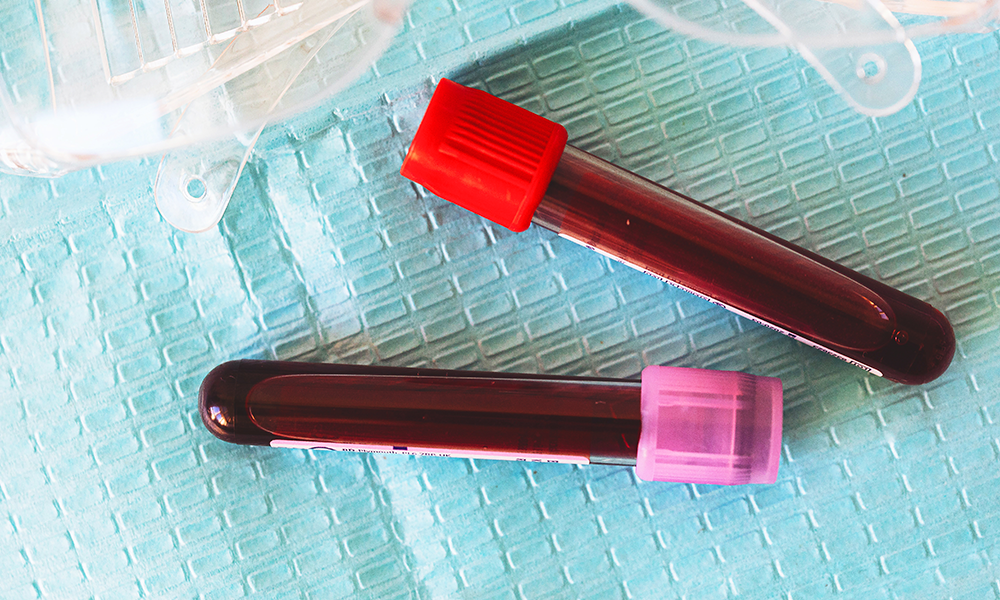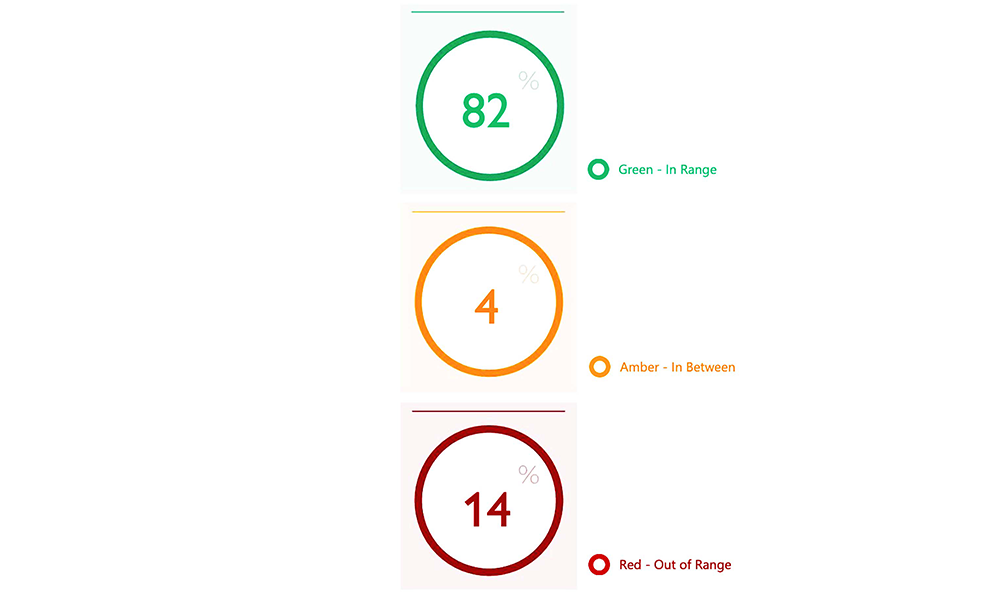What going to the brand’s Canary Wharf clinic is like for its £195, 150-data point assessment

Subscribe to our Wharf Whispers newsletter here
“They say a little knowledge is a dangerous thing, but not half so bad as a lot of ignorance,” wrote Terry Pratchett at the opening of his 1987 novel Equal Rites.
There he was referring to a bumbling wizard keen to secure his magical legacy before his inevitable death, but the sentiment nevertheless remains broadly true.
We are passengers in our bodies.
Whatever it is that passes for our consciousness, if handed full control, would last perhaps a few seconds before being overwhelmed by the astonishing complexities of breathing, pumping blood, interpreting nerve signals and digesting food before rapidly dying.
To jump on the current cultural zeitgeist, Dr Robert Oppenheimer astutely pointed out in one of his Reith Lectures for the BBC that even the best of us, toiling for a lifetime, only manage to do one or two things really well.
If faced with operating the systems of the body, the poor sentient parts of our brains would be next to helpless.
That’s not to say, of course, that we can’t notice things that might help out or improve the way we work.
You don’t need to know how a combustion engine works to understand that putting oil in it lubricates the mechanism and tops it seizing.
Human life has steadily been getting longer precisely as the species has got better at preserving it through medicine, diet, health and safety measures and, generally speaking, killing one another less.
One of those ongoing, incremental revolutions is the rise of monitoring – the collection of data about ourselves, our health and the ways we might use that information to improve things.
While our phones measure our steps, the number of floors we’ve climbed and our sleep, it’s become increasingly commonplace to see people in the gym wearing heart rate monitors and patches continually measuring blood glucose levels.
The idea is that the mostly unseen secrets of our bodies could hold the key to radical benefits for our short and long-term wellbeing.
Who wouldn’t want to know, right?
So, when Randox Health offered me the chance to sample its £195 Discovery package I jumped at the opportunity.
With branches across London, including one recently opened in Canary Wharf, the company is the consumer-facing arm of Randox proper, a Northern Ireland-based global health testing business with revenues in the hundreds of millions.

The appointment arrived on a fresh July morning.
I hadn’t read the instructions properly – glancing through them in Third Space’s changing room, following an unusually strenuous morning Yoga session, I realised too late that I was supposed to have avoided exercise prior to the tests.
Having feverishly consumed about three litres of water in a desperate bid to rehydrate, I nevertheless marched into the Cabot Square clinic to be met with reassurance that we could still go ahead.
Clinical lead Patricia Veres then took me into a consultation room where I was quizzed on the general state of my health, my medical background and lifestyle choices.
The experience then split into three parts.
First I was measured and underwent a body composition scan to assess muscle and fat quantities and ratios.
Next I was dispatched to do the awkward dance of the urine sample – somewhat welcome given my enthusiastic efforts to hydrate.
Patricia told me it should be mid stream, but did that mean I should stop or simply resign myself to a certain amount of splashing?
Suffice to say, pot filled and on to the next adventure.
The final act was the blood test itself.
Having been rejected as a plasma donor during the pandemic thanks to my deeply buried veins, I was dreading this part – but Patricia was the model of slick professionalism, delivering a minimal sharp scratch in seconds and rapidly filling six vials.
With my various liquids and measurements dispatched, ready to give me 150 pieces of information about my body, Patricia took time to answer every one of my questions.
The feel of the whole business was medical but shot through with a welcoming warmth intended to relax and allay customers’ fears.
It worked, I left feeling reassured in the knowledge that in a few days I’d have some fresh insights land in my inbox.
What happens next is just that.
A little less than five working days later, I received a link to the various reports.
These come presented in three documents. The first a summary of any headline issues picked up during the tests, covering various systems in the body.
The second is a copy of the body composition scan which you get to see and discuss in the initial appointment and the third is the detailed results themselves.
Randox also sends out a paper copy of the latter, although quite why in 2023, is anybody’s guess.
Perhaps some people like to frame them.
For want of a more technical explanation, my summary was fairly simple – 82% of the test results were normal or optimal, 4% were a little off and 14% were of some concern.
Some of the report’s conclusions were of little surprise. I’m clinically a bit overweight and could certainly do with shifting a few pounds. I knew that anyway.
But the value here is really in getting glimpses of what lies beneath.
There were bursts of relief – my prostate shows no signs of concern right now, ditto my liver and kidneys.
My diet is apparently working to provide adequate levels of almost all essential nutrients (vitamin D supplements are my secret, especially given the so-called summer we’ve had to date).
But then there’s my phosphorus levels, something possibly a bit questionable with my thyroid function, a bit too much bad cholesterol and an over-abundance of fat-carrying triglycerides in my blood.
With the exception of the weight, I’m currently asymptomatic so none of these issues would likely have seen me beating down my GP’s door.

Now I know, however, I well might.
It’s important to note that a Discovery report is not a diagnosis. The point is to deliver data that may allow people to take action to head off any issues that might be creeping up.
My thyroid function, for example, is completely normal at present.
But the presence of certain antibodies suggests that might not be the case in future so it’s worth keeping an eye on.
It’s also worth noting that a test on a single day is simply a snapshot of the body in a particular state at certain time.
It’s likely the harsh sweaty shapes I’d spent part of the morning bending my unwilling body into will have had some impact on the results – my triglyceride levels, for example.
But others are quite clear.
It’s reassuring to know that my diet is broadly delivering what it should albeit with a side of too much saturated fat. That’s an easy fix.
Tougher is finding enough phosphorus to eat.
After getting the report I later leave Waitrose with a basket overflowing with pumpkin seeds, kefir, mackerel and sardines.
My salted butter days may be behind me, but there’s no shortage of delicious alternatives that should help keep my skeleton in bones.
I will also be seeking a phosphorus supplement, at least in the short term, because while my levels are catastrophically low, its a mineral you have to be careful not to top up too much.
In the end though, the proof will be in the pudding.
While Discovery offers a snapshot, Randox’s most popular packages are its Everyman and Everywoman offerings.
For £295, you essentially get two Discoveries six months apart to help track the impact of any changes you’ve made.
Just don’t go too radical – after all, a little knowledge can be a dangerous thing.
Read More: How Jon Hala in Canary Wharf became a family business
Read Wharf Life’s e-edition here
Subscribe to our Wharf Whispers newsletter here
- Jon Massey is co-founder and editorial director of Wharf Life and writes about a wide range of subjects in Canary Wharf, Docklands and east London - contact via jon.massey@wharf-life.com



